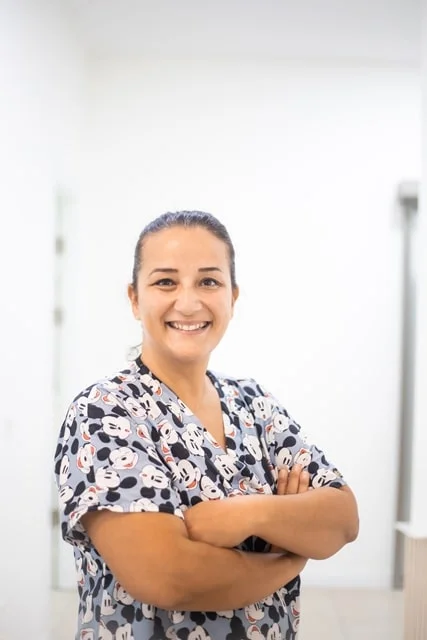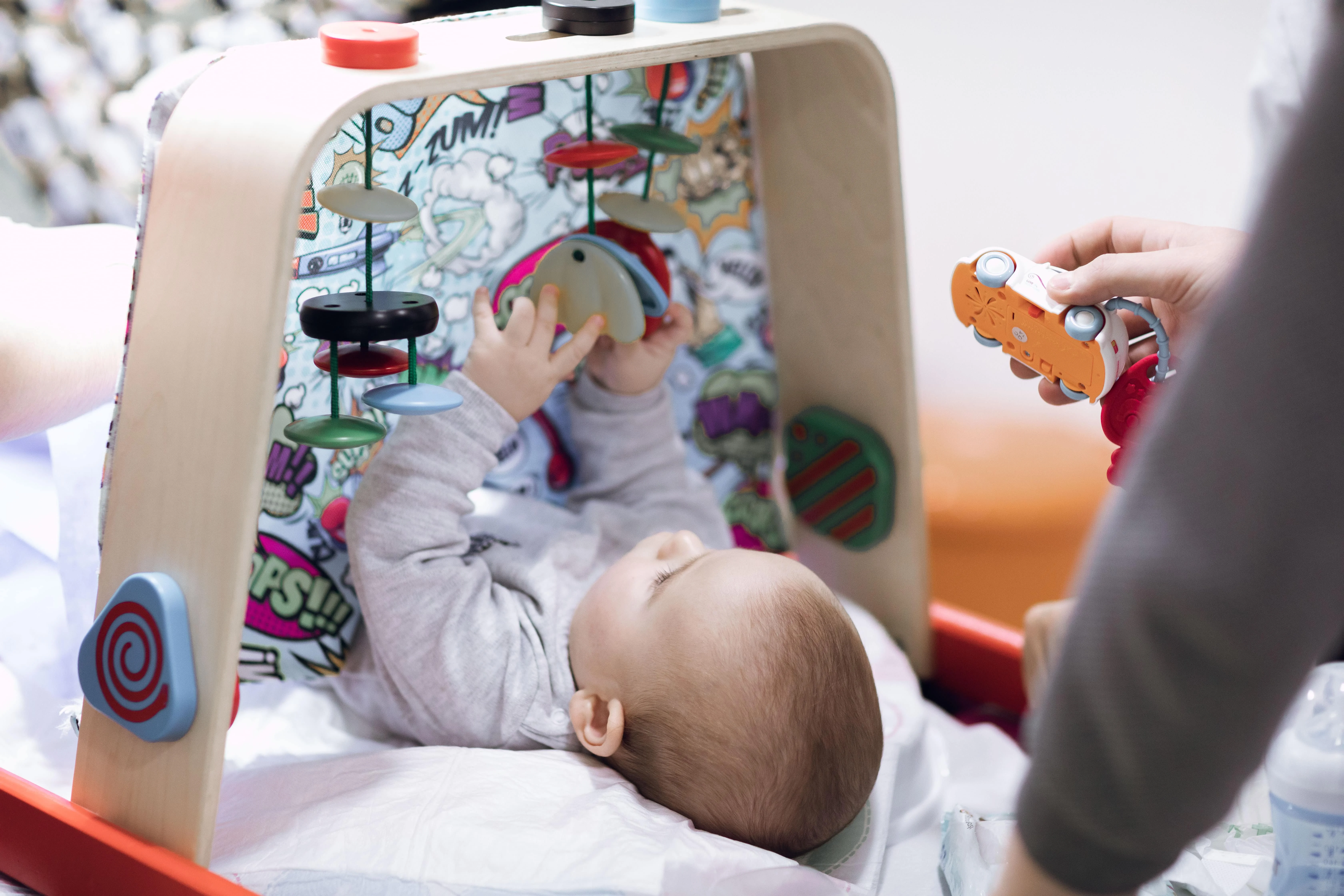What is Circumcision?
Circumcision is the surgical removal of the skin covering the head of the penis, known as the glans penis. There is no objective measurement for this, and each surgeon decides on the amount of tissue to be removed based on their practice. Circumcision is often performed for religious and socio-cultural reasons.
However, there are certain situations where circumcision is necessary or specifically recommended. For example, phimosis (inability to urinate due to the tightness of the foreskin), frequent urinary tract infections, vesicoureteral reflux (backflow of urine from the bladder to the kidney), voiding disorders, and recurrent balanitis (infection of the head of the penis). In the presence of paraphimosis (retraction of the foreskin and inability to return it to its normal position, causing blood flow impairment), urgent circumcision is required.
What is "Milk Circumcision"?
Milk circumcision is a term we came up with. While performing circumcision surgery on babies with local (regional) anesthesia, since the patient does not need to be fasting, I give expressed breast milk or formula through a bottle to keep them calm during the operation. Sometimes even my colleagues ask, “What do you put in the milk?” Mothers put all their love in it; what can I add?
Should Circumcision be Done or Not?
Circumcision is one of the most commonly performed minor surgical procedures worldwide. However, while the surgery is ongoing, the following questions always remain in people's minds: Should circumcision be done or not? Is it truly beneficial for health, or are there any harms? At what age should it be done? Are there any complications? Yes, I believe it should be done because scientific publications highlight its benefits. However, it must be done by experienced hands and under appropriate conditions.
What are the Benefits of Circumcision?
Circumcision has various benefits. These include a reduced frequency of childhood urinary tract infections, decreased risk of penile cancer, and reduced transmission of certain sexually transmitted infections, including HIV. Of course, like all surgical procedures, circumcision also has potential complications. However, the health benefits of newborn male circumcision outweigh the risks.
What is the Right Age for Circumcision?
The psychodynamic theory of personality development, pioneered by Sigmund Freud, is known as the “Psychosexual Development Theory.” According to this theory, human sexual development is completed in five stages:
- Oral stage (0-1 year)
- Anal stage (1-3 years)
- Phallic stage (3-6 years)
- Latent stage (6-11 years)
- Genital stage (11-18 years)
The phallic stage (phallic period; genital period) lasts from the end of the 3rd year to the end of the 6th or 7th year. During this stage, children turn their attention to their genital organs, sexual differences, and their meanings. It is said that children who live this stage comfortably and happily are happy, healthy, affectionate, and creative throughout their lives.
However, there are dozens of articles in the literature stating that there is no relationship between the age of circumcision and sexual function. For example, in a prospective study investigating the effects of circumcision at different childhood ages on adults' sexual activities, no statistically significant difference was found between the groups. It was concluded that circumcision during the phallic stage has no psychosexual effect on adults. In another study, adults circumcised in the newborn period were compared with uncircumcised adults. When the somatosensors on the head of the penis were compared, no statistically significant change was found. In other words, contrary to the rumors that there may be a loss of sensation in the head of the penis after newborn circumcision, no difference was observed between the two groups.
Although it has been scientifically proven that there is no harm in circumcision during the phallic stage, I follow the recommendations of my psychologist and psychiatrist colleagues and do not perform circumcision between 3-6 years unless there is a medical necessity. Every age before or after this period is suitable.
Scientific articles also state that the complication rates after circumcision are lowest in the newborn period. I also recommend the newborn period for circumcision, as the wound healing speed is the fastest, and the fat thickness in the groin area is less.
I want my babies to spend the first 1-2 weeks at home with their families, shed their birth edema, recover from any jaundice if present, and let any other health conditions reveal themselves. Circumcision is very comfortable from the first weeks up to 1-2 months.
As my babies grow older, circumcision becomes more challenging. What’s difficult? After my babies learn to turn, it becomes harder to keep them still during the procedure. They give dramatic looks to their parents, want to be held, and try to get up.
Additionally, after the first 1-2 months, until 1 year of age, as my babies grow older, the folds in their legs increase, and the penis starts to get buried in the fat in the groin area. This makes the healing process a bit more complicated. I ask the family to bring out the penis at every diaper change and constantly clean any accumulated urine residues until the circumcision wound heals or this buried condition persists. This can be somewhat troublesome for families.
After 1 year of age, walking and running start. As movement increases, fat tissues decrease. So, from this period up to 3 years, it can again be a suitable period for circumcision. However, in this period, regional anesthesia alone is not sufficient; I generally also give sedatives to my children.
From 6 years to puberty, every age is again suitable for circumcision. During this period, circumcision can be easily performed with local anesthesia/regional anesthesia by diverting the attention of my children to something else, like a game, tablet, phone, etc., with the right communication technique and suggestions.
Morning erections that start with puberty can make the post-surgical period challenging. Therefore, I do not recommend waiting until puberty for the circumcision operation.

Op. Dr. Asudan Tuğçe ÇİL
Pediatric Surgery


